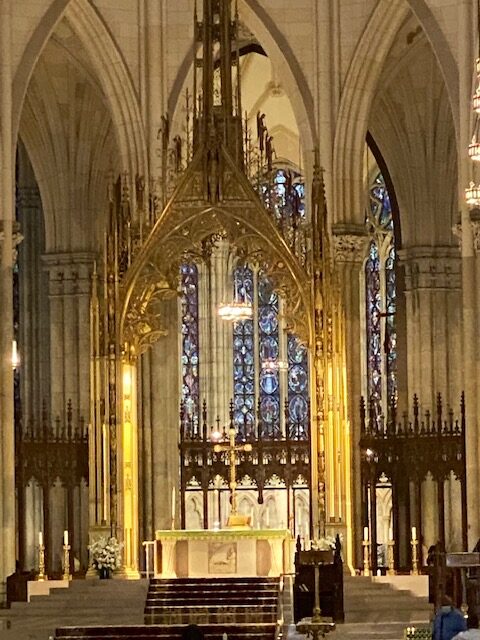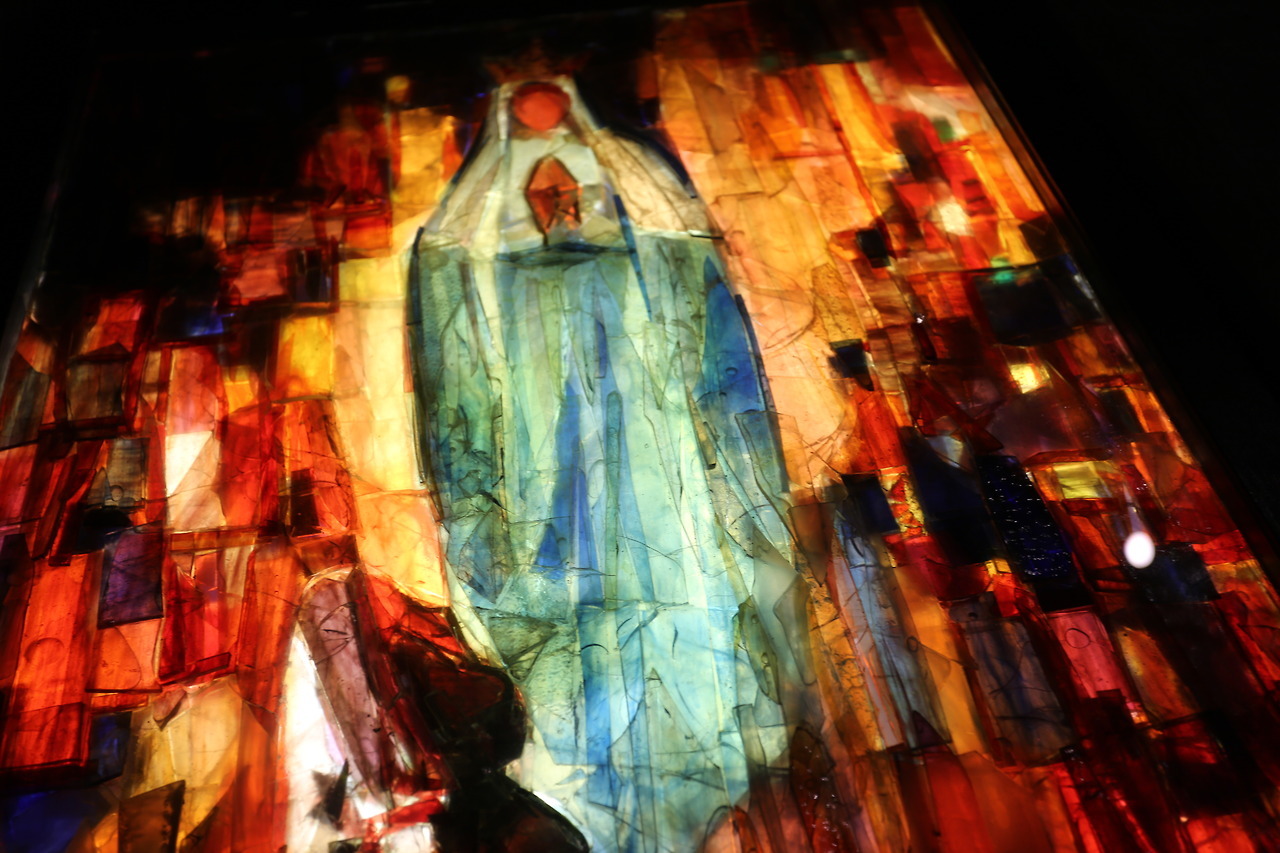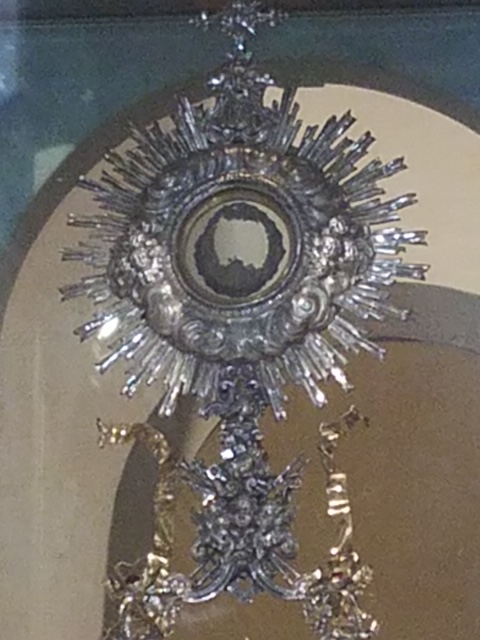Deut. 4:1-2, 6-8; Ps. 15:2-5; James. 1:17-18, 21b-22, 27; Mk. 7:1-8, 14-15, 21-23
Religion that is pure is from the heart to become of one mind and spirit. Perhaps if there is one observance that the Catholic church is criticized by from other Christian religions it is the perception that the Catholic church holds onto many traditions going back to the early church. Evangelicals will question why the church is very meticulous about its religious celebration with many “rules” of observance in its practices. Why not just let the spirit guide the worship that comes from the heart? They may look to today’s gospel as a reminder of the dangers that “in vain do they worship me, teaching as doctrines human precepts.” As good apologist we should be able to invite discussion of our practices and rituals.
As Catholics we are to first recognize that there is a danger for religion that is pure to become impure, if we ourselves allow our gathering to be more about the “rules and rituals” than about the worship of God. At the same time, we should recognize the purity of the rituals and the meaning and significance of everything involved in the liturgy and how it ties back to the beginning of the early church. In one of the most ancient documents is written in Geek about “eucharisesate” to “make Eucharist” that to “give thanks” as sacrifice spoken of by the Lord. To do this through eucharistic prayers by the presider offering bread and win and recommends confession before Communion with the words “First confess your sins, so that your sacrifice may be pure”. Which religion do we know of that keeps these practices alive? These instructions come from the Didache, a document that goes back to 48 A.D. (Ausqulina, M. The Fathers of the Church 1999)
In all the order of life we guide ourselves by “rules” or traditions created for a purpose. We have the “rules of the house” in our home as well as the traditions we celebrate that are there to unite us not divide us. These may be as general as “everyone must pick up after themselves” to as particular as “we always pray before meals”. Not only do they create order but they bring us together to be of one mind and spirit. Who says we should have turkey on Thanksgiving, why can’t we alternate and eat fish as long as we all come together? Try that and see how well everyone agrees and who shows up and who skips out.
If you have served in the armed forces, you know the detailed observance required of each soldier from how they make their bed, dress, and hold their body in attention. We not only create these rules and traditions but we come to accept them as part of the culture and believe in their purpose to unite us and we even take pride in them. Why? Why is it so prevalent in all aspects of any organized group? Why can we not just agree for everyone to “show up” and do whatever their heart desires as long as we believe in the same things? It is for the same reason we must have a common language and an agreed upon set of definitions if we are to be of one mind and spirit or we will all become a religion unto ourselves where no other is willing to enter into and no shared space is allowed.
Religion that is pure is from the heart of love and the rules and traditions that align with it become the means to unite us to be of one mind and spirit so a greater good comes about, a greater worship is offered to God, a deeper love is achieved. We have a religion that is pure and undefiled coming through God and not through “teachings as doctrines (of) human precepts”.
The worship within the Catholic is not an invention of the latest leadership within the church. In fact, in the early Church it was vitally important for the early church Fathers to validate their authority in their teaching as coming from the Apostles who received it from Jesus directly. There was and continues to be Apostolic succession to the traditions and teachings within the Church. The beauty of the Catholic worship is that it comes through Jesus throughout the centuries by word and tradition. No better example of this is the importance of the consecration of the bread and wine into the body and blood of Jesus. The words and tradition behind it go back to the Last Supper and to the discourse Jesus taught his disciples as we have heard over the past few weeks in the gospel readings.
Words matter and traditions matter and through the spirit of God the church has crafted the order of the Mass to bring us together into Jesus’ one body and blood. Yet it holds true that religion that is pure must still begin in the heart of our free will to offer ourselves into the worship and sacrifice of the Mass or we will fall into repeating mindless habits and remain empty because our hearts are far from thee of Lord. We can simply come to Mass as “hearers only” or we can allow ourselves to enter into the mystery of faith becoming “doers of the word” beginning with a simple prayer of surrender, “here I am Lord, let it be according to your will. If I don’t get it then show me your way. I trust in you.” He will because he wills to answer that prayer in every way for our souls.
Religion that is pure and “all good giving and every perfect gift is from above, coming down from the Father of lights, with whom there is no alteration.” In fact, woe to those who have taken to deleting books from the bible that the early church Fathers considered part of the canon, or decided that the unleavened bread and wine can be substituted by crackers and juice or even forgo any remembrance of the last supper in the Sunday worship for more music and preaching. There is to be no “shadow caused by change” coming from our human creation except for the change in us as we “humbly welcome the word that has been planted in you and is able to save your souls” says scripture. Today there are many “shadows” of Christian religion caused by the change of human institutions but there remains one that has persevered from the beginning and we hold true to it from age to age.
Does this sound familiar to you, “On the day we call the day of the sun…gather together. The memoirs of the apostles and the writings of the prophets are read…When the reader finished, he who presides over those gathered admonishes and challenges them to imitate these beautiful things. Then we all rise together and offer prayers for ourselves…and for all others. When the prayers conclude we exchange the kiss. Then someone brings bread and a cup of water and wine mixed together to him who presides over the brethren. He takes them and offers praise and glory to the Father of the universe, through the name of the Son and of the Holy Spirit…that we have been judged worthy of these gifts. When he has concluded the prayers and thanksgiving, all present give voice to an acclamation by saying: “Amen”. When he who presides has given thanks and the people have responded, those we call deacons give to those present the “eucharisted” bread, wine and water and take them to those who are absent.” These instructions were issued by St. Ignatius in 155 A.D. describing the Christian liturgy as it was celebrated in Rome and for the most part as it remains for the Catholic in every Mass today.
Who de we follow? Jesus coming through the authority of apostolic succession who guides his church by holding true to the Word and Tradition he began or the Jesus of our human creation changed over the centuries from branches that have broken away to plant their new theologies. To be fair, Jesus had no sooner ascended to heaven that separate groups of followers began to proclaim different teachings and theology of their own creation. Just to mention a few there were those who claimed Jesus was “pure spirit” not fully human but divine and occupied a body, there were the “intellectual elitist” who separated themselves from the “ordinary Christian and all matter was evil including the human body, then there were the pseudo-charismatics of the second century who with strict morality and asceticism denied forgiveness for serious sins, and in the early third century there was a group who denied the Trinity.
We too are to become the “firstfruits of his creatures” in holding true to the faith handed down by the Apostolic Fathers who received it through Jesus. We are to be a pure religion by our charity of heart for the suffering and by guarding our purity of heart “unstained by the world.” Our challenge is not to retreat into a cloister isolating ourselves as a sect apart from the world but to go forth giving witness to our faith with our God so close to us whenever we call upon him. We are to remain “unstained by the world” by being doers of justice in all our interactions. We recall the truth of justice coming from the word of God.
Jesus was not one to be shy from confronting the truth recalling scripture as he does today with the Pharisees, “This people honor me with their lips, but their hearts are far from me”. We humble ourselves to God but we stand up with courage for the truth. We do not fear the enemy of this world, nor all that we are exposed to that comes from the outside. It will not defile us unless we accept the temptation to do evil and fail to recognize the evil one who is seeking our fall. Then all these evils of the world will not only defile us but we will delude ourselves becoming our own worst enemy by what comes out from within us.
Christ calls us to be the militant church on earth, which is to carry his word bravely on our lips. When Jesus was being tempted in the desert, he confronted the evil one with the word from God as his justice. The word is our justice and we are to “give evidence of (y)our wisdom and intelligence” of the word when we encounter the world. If the word lives in us then it will come out from us, in our lips and in our deeds and the world will know we belong to God and no other. Let us enter into the liturgy as if it was the first time, the last time the only time we have to encounter him in the Eucharist with all our heart and devotion.







Recent Comments